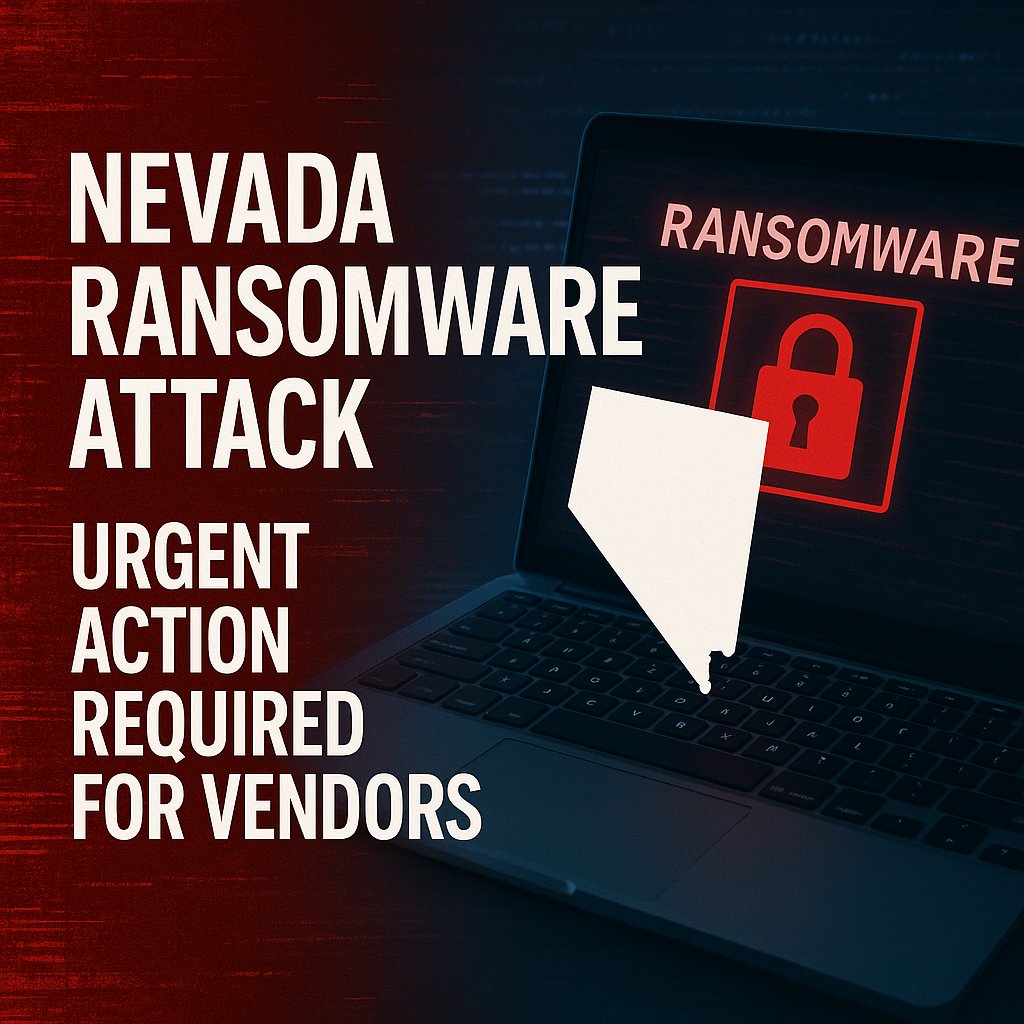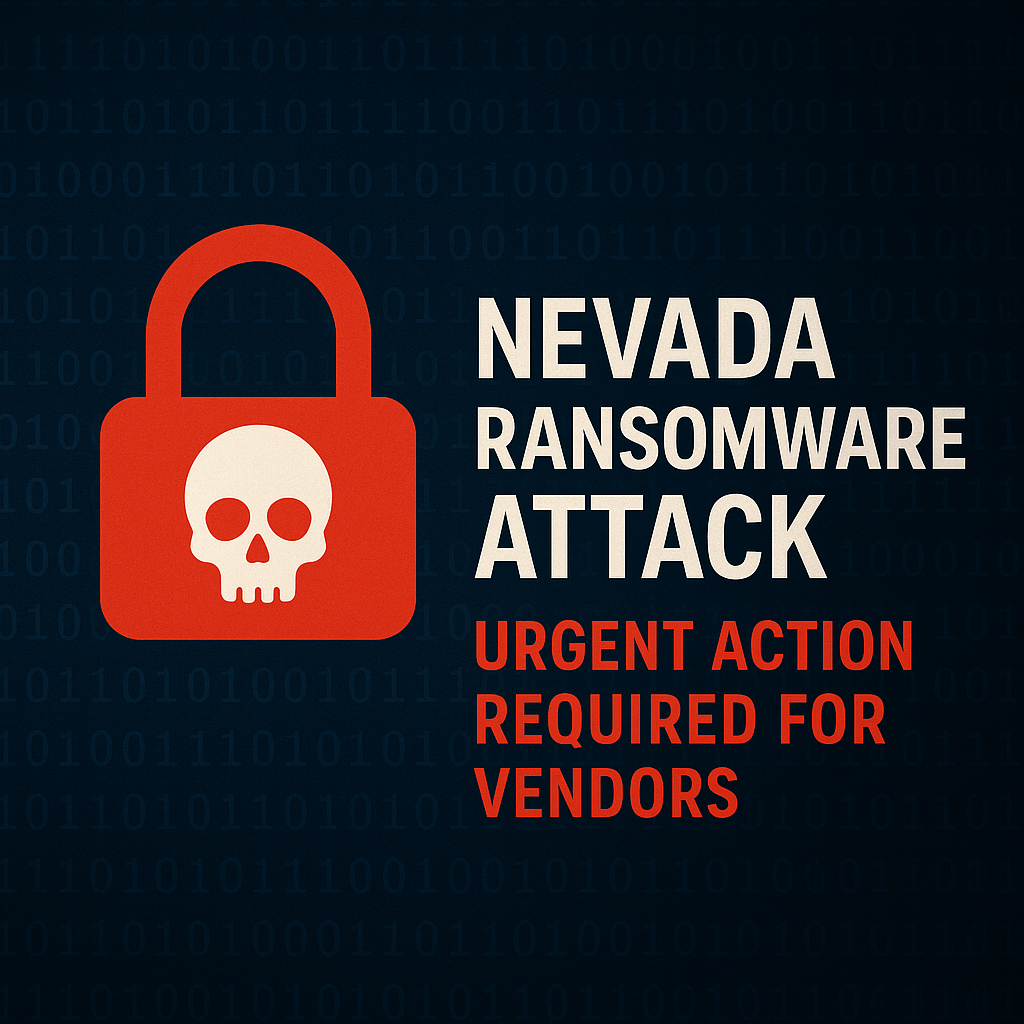Nevada Ransomware Attack: Urgent Action Required for Vendors
Urgent Action Required for Vendors Amidst Nevada Ransomware Attack
Nevada ransomware attack is creating ripples that demand immediate attention and action for the state’s vendors and contractors. The recent breach has not only disrupted daily operations but has also raised questions about cybersecurity protocols across state systems. An analysis of various news sources reveals a multilayered crisis that requires swift and strategic responses.
The Impact on Vendors and Contractors

In recent reports, the Nevada ransomware attack has led to significant delays in financial transactions, affecting numerous state contractors and vendors. According to an article from 8 News Now, many vendors rely on timely payments for their services, and this disruption could jeopardize ongoing projects, causing a ripple effect throughout the supply chain. As payments stall, contractors may struggle to meet their own obligations, which can ultimately lead to a slower pace of public works and essential services.
On the Ground: Real-Life Consequences
Several vendors have expressed frustration over the situation. One contractor noted, “The state is vital for our cash flow. If they can’t pay us, it delays not only our work but also impacts our employees’ livelihoods.” These sentiments highlight a crucial point: a ransomware attack not only threatens digital infrastructure but also extends to real-world implications for everyday workers and businesses.
The Las Vegas Review-Journal reported that the attack has forced state officials to initiate an urgent review of their cybersecurity measures. This includes a comprehensive assessment of all digital assets and contracts into which the state has engaged, underscoring the vulnerability of public infrastructures to cyber threats. Analysts argue that such vulnerabilities are not unique to Nevada but are a national concern, prompting questions about industry-wide preparedness, especially among vendors who often lack the resources to develop robust security measures.
A Call to Action: Strengthening Cybersecurity
To mitigate risks and secure sensitive data, immediate steps must be taken. The state of Nevada is currently encouraging vendors to adopt enhanced security protocols, including:
– Regular Software Updates: Keeping systems updated to the latest security standards can minimize vulnerabilities.
– Employee Training: Educating staff on recognizing phishing scams and potential cyber threats can help reduce the likelihood of a successful ransomware attack.
– Insurance Policy Reviews: Vendors should ensure that their cybersecurity insurance covers potential ransomware attacks, helping them mitigate financial loss.
Insights from Experts
Cybersecurity experts are echoing these sentiments, suggesting that public-sector vendors collaborate with industry professionals to create cybersecurity frameworks tailored to their specific needs. One IT consultant stated, “Collaboration is key in this digital age. Sharing best practices and resources can strengthen defenses across the board.”
However, the situation brings to light an essential component of vendor relationships: accountability. Some experts argue that state agencies must not only enforce better security practices but also take responsibility for creating secure environments where vendors can operate without fear of delayed payments or operational standstill.
The Road Ahead: A Shared Responsibility
What becomes evident from this situation is that the cybersecurity landscape requires a unified approach. While immediate actions can provide temporary relief for Nevada’s vendors, long-term strategies need to be developed. This includes strengthening partnerships between state agencies and vendors, fostering an environment of ongoing education, and most importantly, investing in tailored solutions that adequately address specific risks.
Additionally, as reported by 8 News Now, officials are considering implementing measures that may allow vendors to receive partial payments to ease their cash flow issues during this crisis. While this may provide immediate respite, it also raises further questions about financial stability and accountability in future contracts.
Conclusion: Navigating Uncertainty
The Nevada ransomware attack underscores a pressing need for enhanced cybersecurity measures and cooperative strategies between the state and its vendors. As the situation evolves, both parties will have to navigate a landscape laden with uncertainty and risk. The urgency of action cannot be overstated, as each delay not only threatens contractual obligations but also endangers the livelihoods tied to the state’s operations. Collaborative efforts will be paramount in building resilience against future attacks while ensuring that all stakeholders can work towards a more secure and efficient operation.
By fostering partnerships and investing in robust cybersecurity protocols, Nevada can emerge from this crisis stronger and more prepared for the digital challenges of the future.





